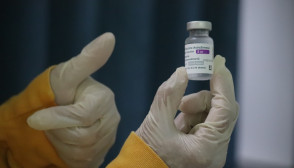TERRE HAUTE, Ind. (Reuters) - The U.S. government carried out the 13th and final federal execution under President Donald Trump's administration early on Saturday, days before his successor Joe Biden takes office with a promise to try to end the death penalty.
Dustin Higgs, 48, was pronounced dead at 1:23 a.m. EST (0623 GMT), the federal Bureau of Prisons said in a statement, after a late-night Supreme Court ruling cleared the way for the execution to proceed.
Since resuming federal executions last year after a 17-year hiatus, Trump, a long-time proponent of capital punishment, has overseen more executions than any U.S. president since the 19th century, including three this week.
Higgs was convicted and sentenced to death in 2001 for his role in the kidnapping and murder of three women on a federal wildlife reserve in Maryland in 1996: Tanji Jackson, Tamika Black and Mishann Chinn.
His accomplice, Willis Haynes, who confessed to shooting the women, was sentenced to life in prison in a separate trial.
In his final words, Higgs sounded calm and defiant at the Justice Department's death chamber in its prison in Terre Haute, Indiana, a reporter who served as a media witness said.
"I'd like to say I am an innocent man," he said before lethal injections were administered, mentioning the three women by name. "I did not order the murders."
Some of his victims' relatives attended, and a sister of Jackson released a statement, although the Bureau of Prisons did not share the sister's name.
"When the day is over, your death will not bring my sister and the other victims back," the statement said. "This is not closure, this is the consequence of your actions."
Higgs' older sister, Alexa Cave, could be heard sobbing uncontrollably from a separate witness room as Higgs died.
"THIS IS NOT JUSTICE"
"The government completed its unprecedented slaughter of 13 human beings tonight by killing Dustin Higgs, a Black man who never killed anyone, on Martin Luther King's birthday," Shawn Nolan, one of Higgs' lawyers, said in a statement.
"Dustin spent decades on death row in solitary confinement helping others around him, while working tirelessly to fight his unjust convictions."
The majority conservative Supreme Court's ruling was consistent with earlier decisions: it had dismissed all orders by lower courts delaying federal executions since they were resumed last year.
"This is not justice," one of its members, Justice Sonia Sotomayor, wrote in dissent.
"After waiting almost two decades to resume federal executions, the Government should have proceeded with some measure of restraint to ensure it did so lawfully. When it did not, this Court should have. It has not."
The federal government executed 10 people last year, more than three times as many as in the previous six decades, marking the first time that it had conducted more executions than all U.S. states combined, according to a database compiled by the Death Penalty Information Center.
A minority of the country's 50 states still carry out executions.
Before Trump became president, only three people had been executed by the federal government since 1963.
The American Civil Liberties Union (ACLU) called the execution of Higgs the end of a "cruel, inhumane and lawless" spree by the federal government.
"President-elect Joe Biden has pledged to end the federal death penalty. He must honor that commitment," Cassandra Stubbs, director of ACLU's Capital Punishment Project said.
After a failed triple date with the three women, Higgs and Haynes offered to drive them home but instead took them to the Patuxent Research Refuge. Prosecutors said Higgs gave Haynes a gun and told him to shoot the three women.
The disparity in their sentences was grounds for clemency, Higgs's lawyers had said.
Higgs and another death row inmate, Corey Johnson, were diagnosed with COVID-19 in December, but on Wednesday the Supreme Court rejected an order by a federal judge in Washington delaying their executions for several weeks to allow their lungs to heal.
The Justice Department executed Johnson on Thursday night.
Cave, Higgs' sister, said she believed life in prison would have been a more just punishment.
"They don't have freedom at all in any sense of the word," she said in an interview on Friday, before Higgs was executed. "What purpose does it serve to kill you? It brings nothing back."
(Reporting by Jonathan Allen in Terre Haute, Indiana, and Bhargav Acharya in Bengaluru; Editing by William Mallard and John Stonestreet)










